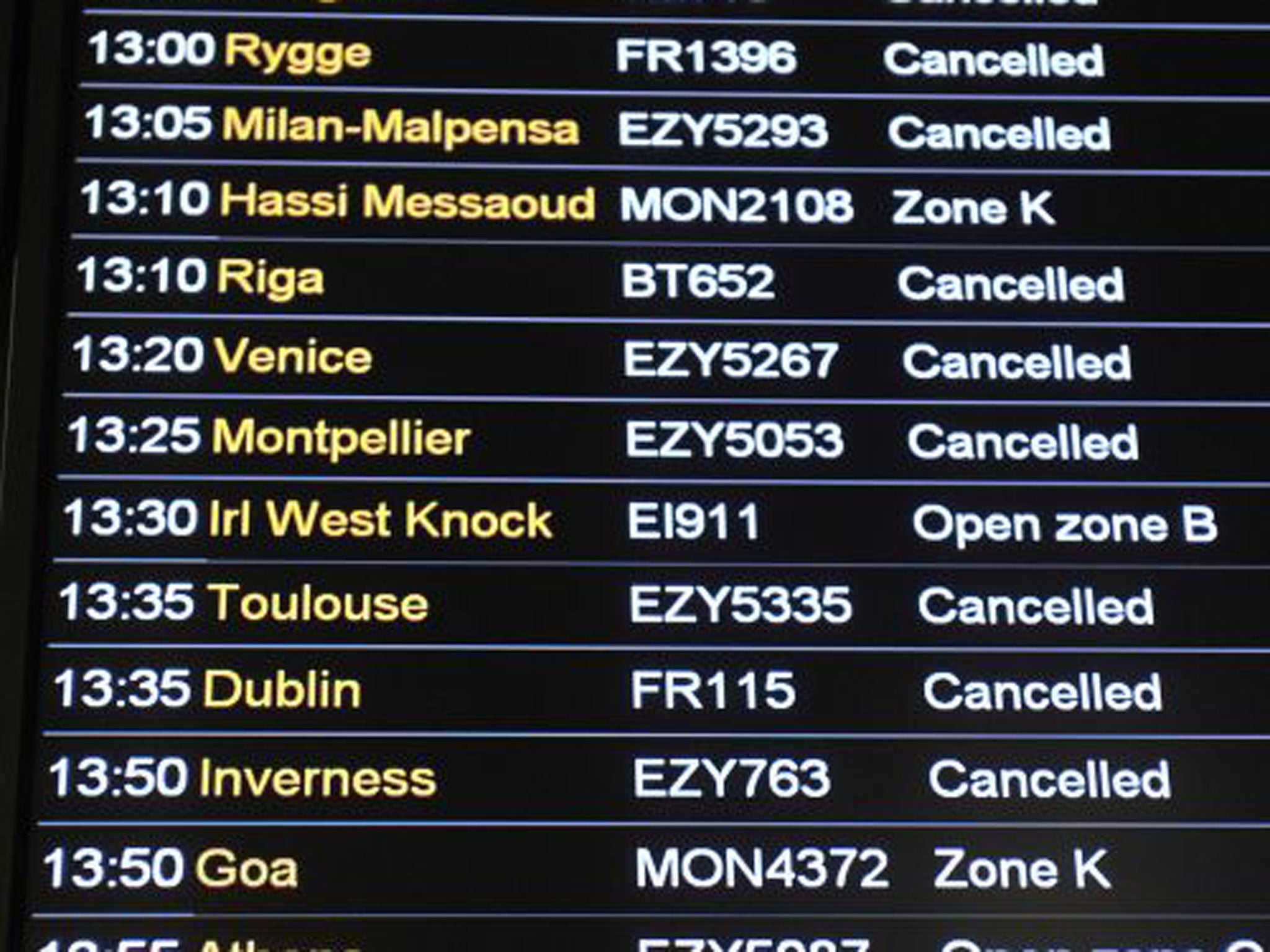Does your airline owe you for flight delays?
A recent legal ruling means better compensation for flight delays, says Simon Calder

Your support helps us to tell the story
From reproductive rights to climate change to Big Tech, The Independent is on the ground when the story is developing. Whether it's investigating the financials of Elon Musk's pro-Trump PAC or producing our latest documentary, 'The A Word', which shines a light on the American women fighting for reproductive rights, we know how important it is to parse out the facts from the messaging.
At such a critical moment in US history, we need reporters on the ground. Your donation allows us to keep sending journalists to speak to both sides of the story.
The Independent is trusted by Americans across the entire political spectrum. And unlike many other quality news outlets, we choose not to lock Americans out of our reporting and analysis with paywalls. We believe quality journalism should be available to everyone, paid for by those who can afford it.
Your support makes all the difference.Your flight was delayed – what are your rights?
Since February 2005, airline passengers have enjoyed strong legal rights when flights are disrupted. EU261, the set of rules imposed by Europe, lays down the duty of care that airlines have in the event of delays – whatever the cause.
The rules apply to all flights departing from an airport in the EU, and to flights on EU airlines departing from outside Europe. Example: all flights from Heathrow to New York are covered; in the opposite direction, a BA or Virgin flight would qualify, but a Delta or American Airlines service would not. “Code-share” flights operated by a non-European airline don’t count. So if you book a “BA” flight from New York to the UK on BA’s partner, American Airlines, you have no rights for care or compensation under EU261.
On qualifying flights, any delay above two hours for short flights, three hours for mid-haul trips and four hours for long-haul departure obliges the airline to provide meals and accommodation, as appropriate until you can be transported.
A judgement on 31 January 2013, in a test case brought by Ryanair, confirmed that an airline’s obligation to look after a delayed passenger is unlimited – no carrier can seek to “cap” the meals and accommodation, regardless of how much or how little you paid for your ticket.
For tens of thousands of travellers, however, an even more significant judgement was made late last year: that a delay of three hours or more amounts to a cancellation.
What’s changed?
Originally there was a sharp distinction between planes that are merely late, and services that are actually axed. Cash compensation came only with the latter.
For short-notice cancellations (those with less than two weeks’ notice), the EU lays down a tariff of cash compensation due to passengers of €250 for flights of up to 1,500km (eg London-Berlin), €400 for a flight between 1,500 and 3,500km (eg Manchester-Athens) and €600 for anything above 3,500km (pretty much anything outside Europe).
European judges have now concluded that any passenger who experiences a delay of three hours that is not excused on the grounds of “extraordinary circumstances” entitles the passenger to demand a cash payment.
What would ‘extraordinary circumstances’ entail?
There are many reasons why the airline may be blameless in the eyes of the law. This includes air-traffic control issues, poor weather and industrial action. Some airlines are using the “extraordinary circumstances” defence even if the delay is due to operational decisions by the airline. But the presumption is that the passenger is in the right unless the airline can successfully demonstrate otherwise.
How do I claim?
A good place to start is with the Civil Aviation Authority’s useful online guide, at bit.ly/CAAhelp.
With some airlines, you can successfully claim via their websites – but others reject online applications, maintaining (incorrectly) that a delayed flight does not qualify for compensation. In this case, send a recorded delivery letter outlining your claim to the airline’s head office.
Don’t assume you will get a quick and positive response. Some airlines may ignore your request or invent excuses such as an imaginary 28-day limit on claims.
The CAA says: “In principle, people can claim back to 2005; however, UK courts will not hear claims from any more than six years ago, so passengers should bear this in mind when making a claim”.
If your claim makes no progress, approach the “national enforcement body” of the country where the delay took place; see bit.ly/261claim for a complete list. The CAA is prepared to adjudicate in cases of dispute.
Join our commenting forum
Join thought-provoking conversations, follow other Independent readers and see their replies
Comments